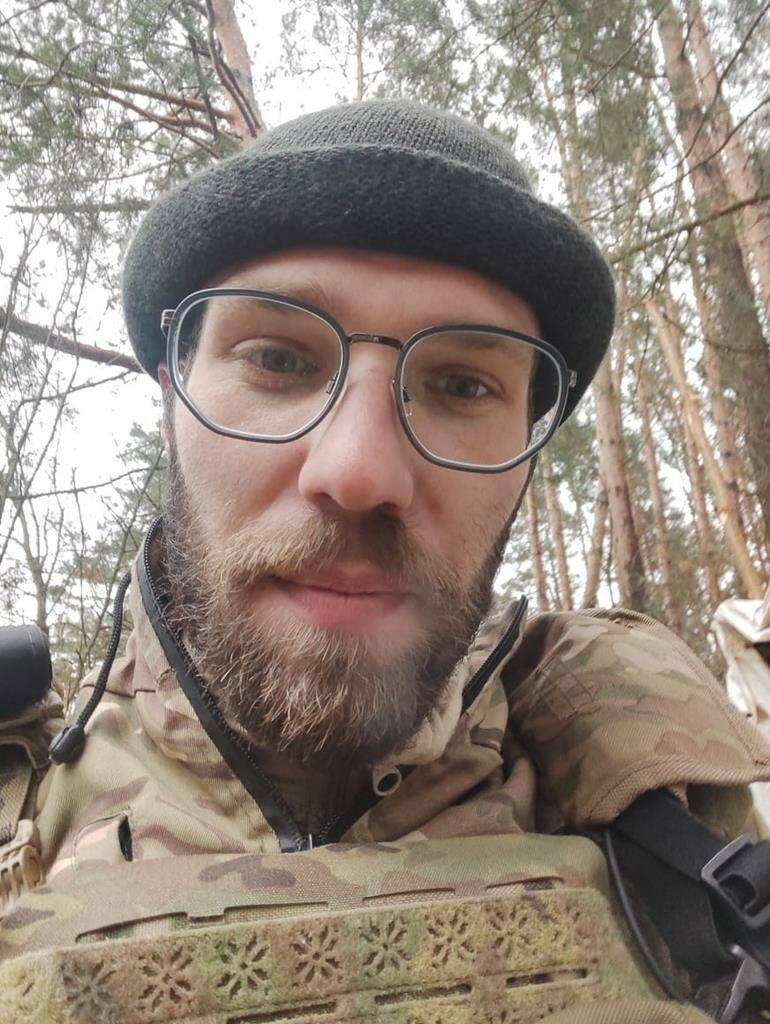Seven months after managing a Kyiv coffee shop, Anton’s reality has gone from grinding beans and the hiss of hot espresso to the high-pitched scream of explosive Iranian drones on the front lines in the war between Ukraine and Russia.
Like many members of the Ukrainian military, Anton goes by his first name, as soldiers are discouraged from revealing their last names for the safety of family members in the country.
Anton, who worked as an interpreter for The Canadian Press last year, was drafted into the Ukrainian armed forces in July as a rifleman and is on the front line in Bakhmut as the conflict is set to mark the end of its second year this week.
During a night patrol, Anton says the silence was shattered by the sound of an Iranian-built drone used by the Russians.
“There’s a screaming sound somewhere by you, and you know you should take cover. Like, ‘Eeee!’ And it’s flying nearby. It landed about 10 metres in front of me,” he says.
“We were taking cover, so it didn’t hit us. You either run for the trees or the trenches if you hear that noise.”
Russian artillery is constant, he says, but it’s the explosive drones that pose the biggest threat.
“When we had the first strike, we were in a car. That was really scary. It was near our front right wheel. So the guy who was sitting in the front, he got some shrapnel in his legs,” Anton says.
“I was sitting in the back. At that moment, I just remember the helmet of the driver was flying past my head.”
Bakhmut has been the scene of ferocious battles since the Russians sought to capture the city of 70,000 in July 2022.
Since then, the city has been all but levelled. Most residents have fled, and little progress has been made by either side in what is believed to be the longest battle in the war.
Thousands of soldiers have died on both sides at Bakhmut, and tens of thousands have been wounded.
Ukrainian fortunes in the area have suffered a blow, with Ukrainian soldiers recently pulling back from the key city of Avdiivka, 90 kilometres to the south, after a four-month battle.
Military leaders have said a slowing of western aid, ammunition and weapons, most notably from the United States, has allowed Russian troops to make gains.
Ukrainian President Volodymyr Zelenskyy said his country needs more military aid from its western backers to stand a chance of fending off further Russian attacks.
Anton has had a month of training by Canadian and American soldiers in the United Kingdom and, more recently, a month in Germany, where he and his comrades were taught battle tactics.
He managed to obtain proper body armour, including plates and ballistic goggles, which he says he paid for himself.
A recent promotion and a boost in salary allowed him to send some money home to his girlfriend and buy more ammunition.
He says it’s been a cold and snowy winter. One day, he and fellow soldiers kept warm by cutting fallen trees into firewood.
Food is usually soup or stew. There are two cats that provide moral support and reduce the rodent population.
“Right now, I’m safe,” he says with a shrug during a FaceTime call.
“I’m doing my duty. It’s a matter of honour.”
Saturday’s grim milestone is on his mind, he says, but nobody talks about it.
“For us, there are too many guys lost. I’ve lost a few friends already,” he says.
“When we are in the trenches, we pray to God. We’re praying to some powerful thing. We’re just praying to everybody … ‘not us, not us,’” he says.
“I am not a hero. I’m just trying to stay alive.”
READ ALSO: 800 drones on way to Ukraine for surveillance, Canada says

